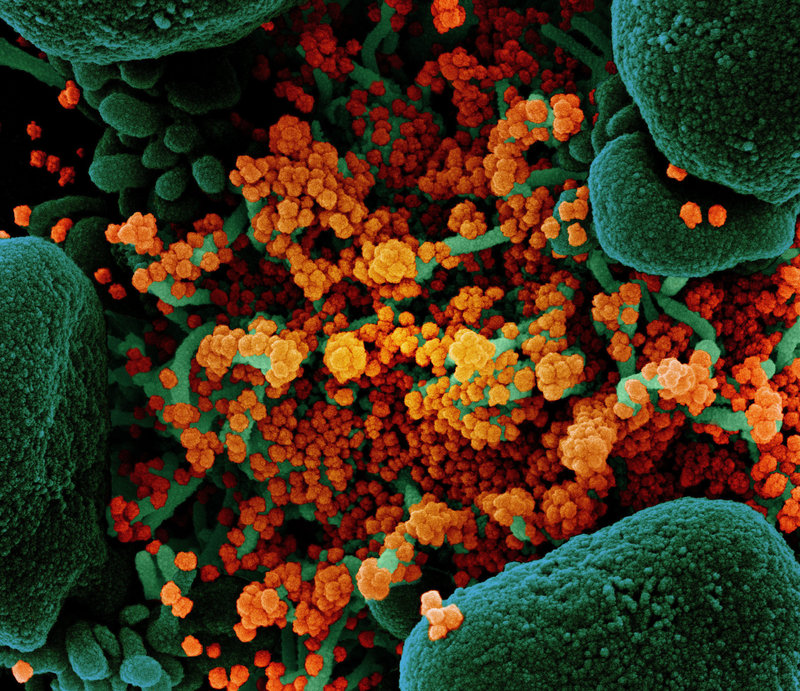by Muazzam Khursheed
Throughout my experience of battling with the virus, what I could comprehend is that other than medication, the mental health of the patient plays a very important factor in determining the body’s response towards the virus.

As Covid-19 cases continue to surge across the globe, Jammu and Kashmir’s pandemic tally has already crossed 100 thousand with deaths nearing 1600, most of them in Kashmir. Like millions of families worldwide, it engulfed my family too.
It began when my grandmother complained of fatigue and slight chest pain after which she was given medication as advised by the doctor. However, after a few days, one night she complained of breathlessness and was subsequently rushed to the hospital.
As per the protocol, she was tested for the virus, which came out positive. Immediate hospitalization and oxygen support followed. A wave of panic ran through the family. As fate would have it, from my grandparents – in their eighties, to my three-year-old cousin – ten of my family members and close relatives were down with the virus. A week later, I too joined them after testing positive on October 28.
After my grandmother tested positive, in the days that followed, my father, uncle, 3-year old cousin brother, grandfather and others also tested positive for the virus with mild symptoms and as per protocol, I got quarantined myself. Days passed by, everybody started recovering but who knew what next was in store, I started developing mild symptoms with slight fever and body ache. Without any further delay, I went for getting myself tested and the result was positive.
Millions of thoughts gushed my brain and panic creped in as I drove back home. Upon reaching back, what followed next was an isolation period of 14 days. The initial 5 days were expectedly traumatic; full of stress with fatigue and body ache being constant companions. Soon, however, the body started getting normal. A fortnight later, I tested negative.
We need to understand that this virus can affect different people in different ways, sometimes people get really sick and require hospitalization while as some may not experience grave issues and recover at home itself. It is also imperative to recognize that the response of the majority of people after testing positive for Covid-19 is usually panic, later followed by constant anxiety and high levels of stress.
As I understood it, maintaining calm can prove to be the foremost step which is highly essential towards countering it. Frequent gargles, sipping hot water and hot water steams can prove to be very helpful.
Throughout my experience of battling with the virus, what I could comprehend is that other than medication, the mental health of the patient plays a very important factor in determining the body’s response towards the virus. While stress is a natural thing to occur if one contracts the virus, it has been observed that many Covid-19 patients tend to stress way too much about it, which later adds up and leads to anxiety and in some cases depression as well.
Through multiple observations, it has been observed that since the onset of Covid-19 and given the high number of people catching the virus, the population has begun to develop herd immunity against it. This, however, may take some more time and may not be of any help to people with age not on their side or those having co-morbidities.
One has to keep certain basics in mind, there is an internationally accepted protocol and medication which needs to be followed in letter and spirit. However, what has become a usual practice these days is that these advisories are being taken over by common people through WhatsApp university which is very dangerous and detrimental with respect to the health of the patient. The worst part is that these people in some cases then start prescribing diagnostic tests and medicines which usually are not required and drain the patient mentally as well as financially.
Any person after getting infected may feel a lot of bodily issues, such as weakness, less appetite, confusion at times, which are absolutely normal and must not trigger panic. However, it is highly advised that one must follow some hobby and remain busy.
Apart from this, light exercises, which might even be taking a walk inside the room or basic stretching, can prove to be highly beneficial in tackling Covid-19. A proper timetable should be charted down and followed strictly.

The isolation period teaches us how certain things, we take for granted, are very important. The biggest lesson that Covid-19 has taught us is that the major relief during this crisis can be the constant support of family and friends, despite the fact that they are not able to physically help you but the external support like keeping food and medical supplies available can prove to be a major stress booster.
People these days are not adhering to the prescribed medical protocols, not wearing masks, not maintaining physical distance or avoiding crowds. When someone contracts the virus, (s)he practically becomes untouchable for the same people.
It is critical to recognize that the virus doesn’t have friends that it will spare. In a pandemic, it is difficult to stay untouched. We as a society need not abandon those infected by the virus but come together as one big family and support each other.
(Author is a student of Jamia Millia Islamia, Delhi)















